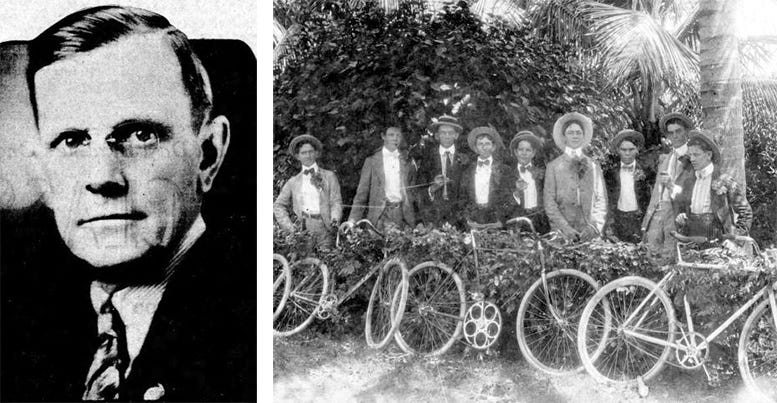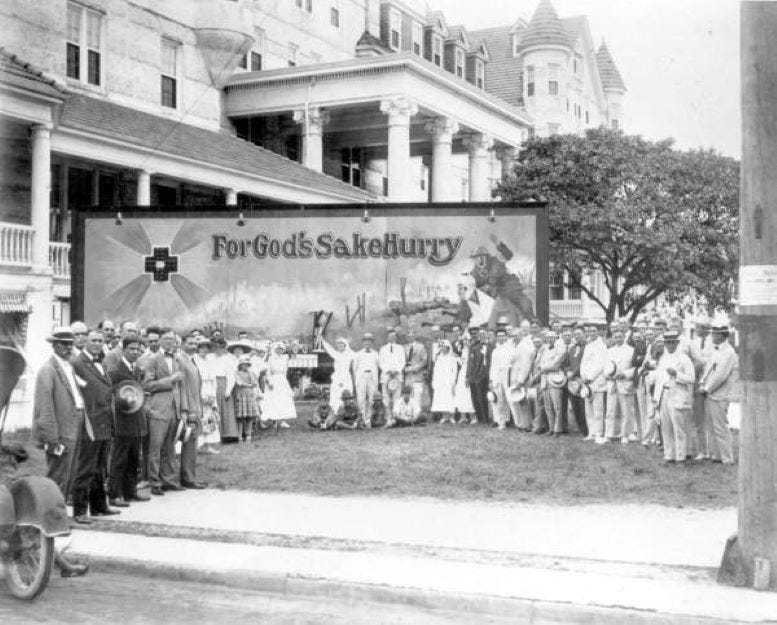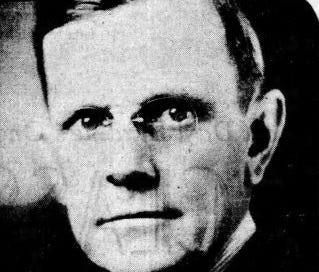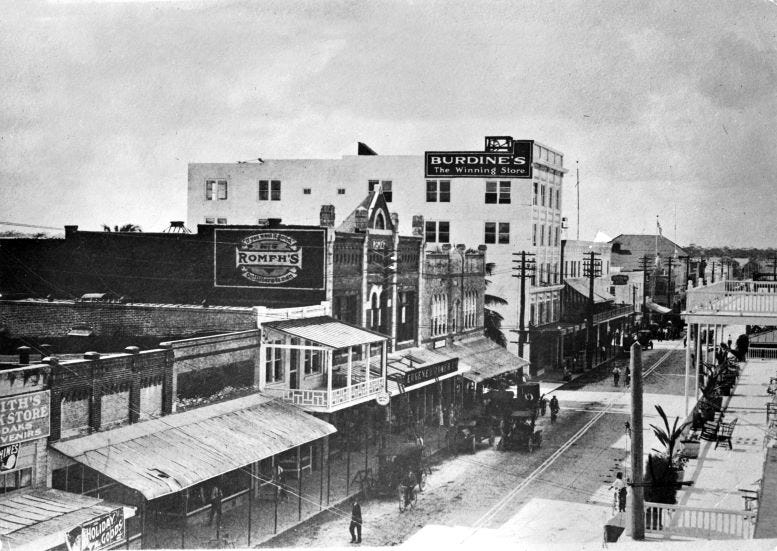Miami Pioneer Freeman Burdine
Remembering a member of the pioneer Burdine family on the anniversary of his passing on November 6, 1929. Freeman Burdine was a prominent attorney and board member of Burdines Department Store.

When William and Mary Burdine moved their three boys and one daughter to Miami in 1898, they were on the verge of building the city’s most recognizable retail institution. While their two youngest sons decided to join the family business, their eldest son chose a different path.
Robert Freeman Burdine, who preferred to be called to by his middle name, was born in Verona, Mississippi, on May 15, 1884 to William and Mary Taylor Freeman Burdine. His middle name was his mother’s maiden name and he was the couple’s first born of four children.
When the freezes of 1894 and 1895 destroyed the citrus crops owned by the Burdines in central Florida, William moved the family to Bartow, Florida, and formed a partnership to establish a dry goods store with Henry Payne in April of 1896. The partnership didn’t last long, but it did provide William with enough experience to start a new retail operation by the name of William Burdine & Son. His partner in this venture was his son, John, from a prior marriage.
As fate would have it, circumstances would provide the Burdines with a new opportunity in a new city. When the Spanish American War broke out in 1898, William heard about a training facility that was being established in southeast Florida called Camp Miami. At the time, there were 1,200 residents in Miami when the federal government sent 7,000 volunteer troops for training prior to their deployment to Cuba. He figured that the newly established camp would need supplies, so he sent John with a wagon of merchandise to the encampment shortly after it formed.
Once John arrived at the Magic City, it was clear that the area was in desperate need of the type of goods he brought from Bartow. He was completely sold out of his inventory within a day. He sent word back to his father who then decided to close his store in Bartow and move his business and family to Miami.
By 1904, Freeman was twenty years old and practicing law. After getting some experience in Miami, he became part of the firm Atkinson, Gramling and Burdine and moved to Apalachicola, Florida where he setup his law practice. In the next few years, he met and married his wife, Genie Moore, and began to not only establish roots, but also a reputation as a fine attorney.
Following the death of his father in 1911, Freeman returned to Miami to continue his law career as a defense attorney. He represented the “wets” in 1913 when a lawsuit was filed to challenge irregularities of voter registration in the rural areas of Dade County to determine the fate of the sale and consumption of alcohol in the county. When the election was held in October, the electorate sided with the “drys” and Dade County was alcohol free, in theory, seven years prior to National Prohibition.

Freeman was appointed chairman of the sale of war certificates, or bonds, for the City of Miami at the onset of World War I. It was his responsibility to promote and raise money for the war effort. Each city had a quota to help fund the country’s participation in the war and Miami exceeded its quota during Burdine’s tenure as the chairman.
Keep reading with a 7-day free trial
Subscribe to Miami History to keep reading this post and get 7 days of free access to the full post archives.





